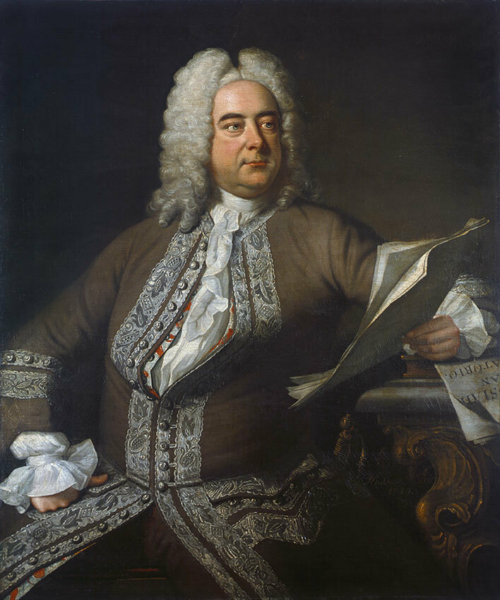Georg Friedrich Händel (1685–1759)
Georg Friedrich Händel ist einer der berühmtesten Komponisten des Barock. Sein Halleluja aus dem Messias HWV 56 ist weltbekannt. Sein umfangreiches Schaffen umfasst zahlreiche Opern, Oratorien und Instrumentalwerke.
Zunächst wirkte Händel als Organist an der Dom- und Schlosskirche in Halle. 1703 erhielt er eine Stelle als Violinist an der Hamburger Oper. Während seines Italienaufenthalts von 1706 bis 1710 studierte er die italienische Oper. In der Folgezeit war er abwechselnd in London und Hannover, wohin er 1710 zum Hofkapellmeister berufen wurde. In England feierte er mit seinen Kompositionen so große Erfolge, dass ihm 1727 das englische Bürgerrecht verliehen wurde.
Nach mehreren Versuchen einer Gesamtausgabe in England erschienen 1858ff erstmals Händels „Sämtliche Werke“ in 94 Bänden bei Breitkopf & Härtel in Leipzig, herausgegeben von Friedrich Chrysander und der Deutschen Händel-Gesellschaft. In jüngster Zeit hat sich besonders der international renommierte Barockexperte Ton Koopman um die Herausgabe von Händels Orgelkonzerten verdient gemacht.









